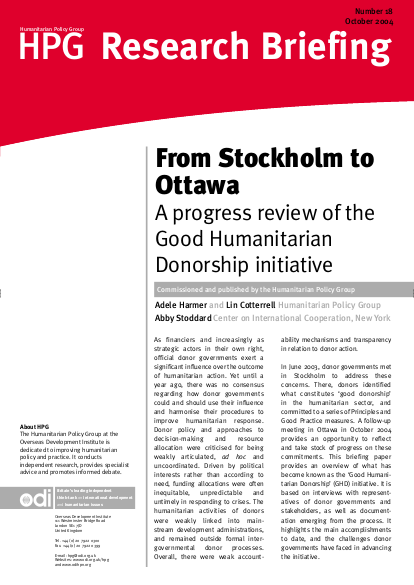
As financiers and increasingly as strategic actors in their own right, official donor governments exert a significant influence over the outcome of humanitarian action. Yet until a year ago, there was no consensus regarding how donor governments could and should use their influence and harmonise their procedures to improve humanitarian response. Donor policy and approaches to decision-making and resource allocation were criticised for being weakly articulated, ad hoc and uncoordinated. Driven by political interests rather than according to need, funding allocations were often inequitable, unpredictable and untimely in responding to crises. The humanitarian activities of donors were weakly linked into main- stream development administrations, and remained outside formal inter- governmental donor processes. Overall, there were weak account- ability mechanisms and transparency in relation to donor action.